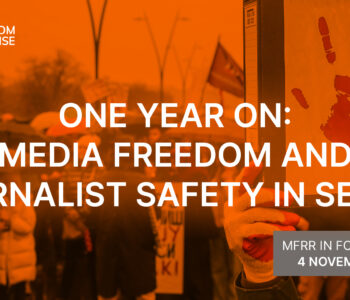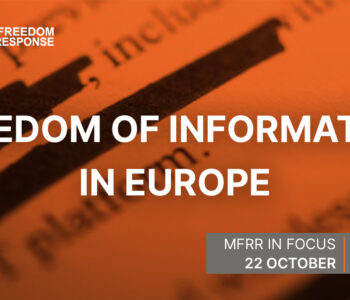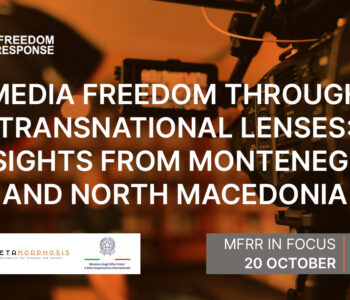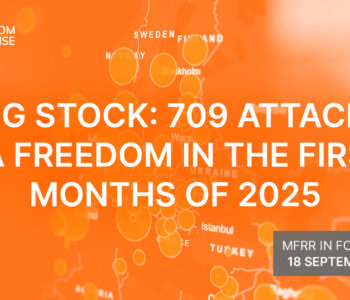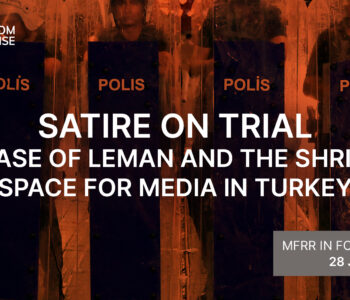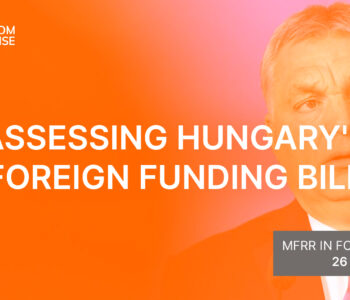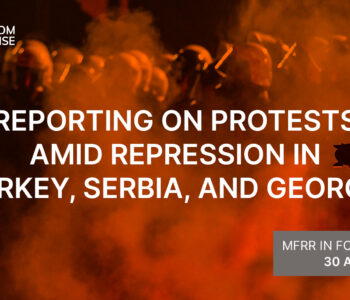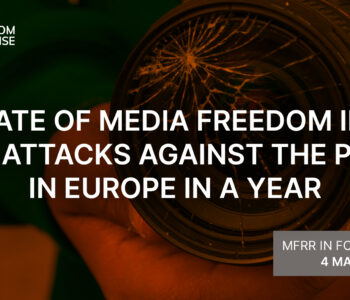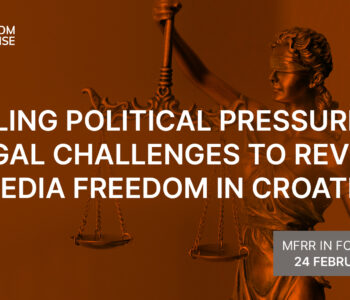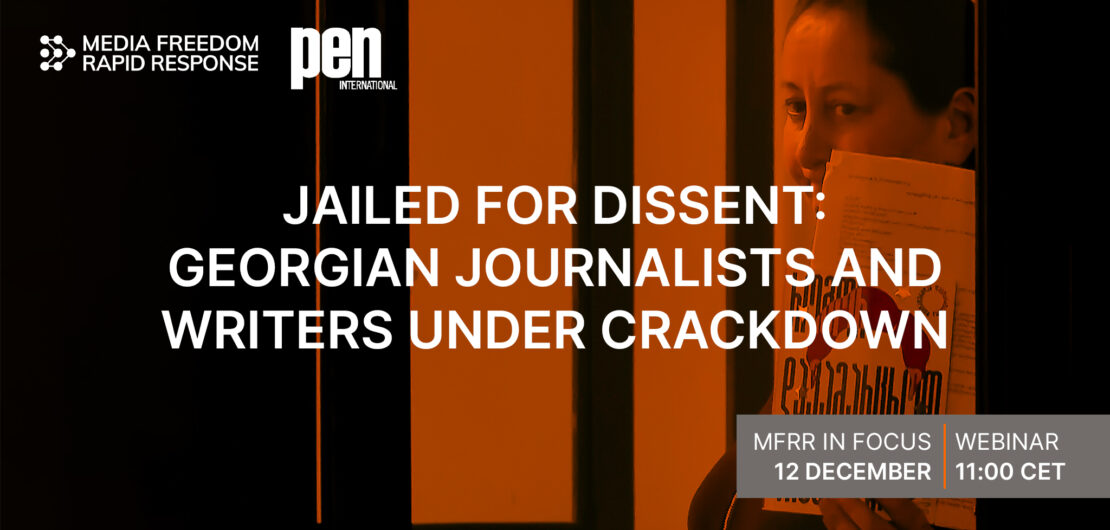
Jailed for dissent: Georgian journalists and writers under crackdown
Jailed for dissent
Georgian journalists and writers under crackdown
Friday, 12 December 2025 at 11:00 am CEST.
On August 6, 2025, after more than 200 days of unjust pretrial detention and a highly politicized trial, Georgian journalist and Sakharov Prize laureate Mzia Amaglobeli was sentenced to two years in prison, as the world watched and protesters gathered outside a courtroom in Batumi, Georgia. She is the first female journalist to be imprisoned in Georgia’s 34 years of independence.
Mzia is being targeted and punished for her decades-long work and dedication to independent reporting that exposes corruption, political repression, and human rights violations.
She is the first female journalist imprisoned in Georgia since the fall of the Soviet Union. Georgia now has over 60 political prisoners, most of them jailed during the wave of protests that erupted after the October 28, 2024, elections and the ruling party’s subsequent announcement about halting EU integration.
Since October 28, Mapping Media Freedom recorded 117 attacks on media freedom involving 312 journalists. Among them 31 journalists have been subjected to arbitrary and unjust arrests.
Among those jailed for dissent is Zviad Ratiani, renowned Georgian poet sentenced to two years in prison under grossly disproportionate charges of assaulting a police officer.
The ruling Georgian Dream party is entrenching authoritarian rule not only through elections, but also through the systematic capture of the judiciary, turning it into a tool for stifling dissent and protecting those in power.
To mark the International Human Rights Day on December 10 and the awarding of Mzia Amaglobeli with the Sakharov Prize on December 16, MFRR is shining a spotlight on Georgia – a country once regarded as a beacon of democracy in the South Caucasus, now moving closer each day toward fully consolidated authoritarianism.
We will examine the attacks on media freedom, independent journalism and freedom of expression in Georgia, explore how those jailed for speaking out can be supported by the international community, and the ways to reverse the country’s authoritarian drift.
This webinar is organised in partnership with PEN International, joining efforts to defend free expression and support Georgian journalists targeted for dissent.
Speakers

Irma Dimitradze
Communications Manager and Journalist at Batumelebi and Netgazeti

Khatuna Tskhadadze
PEN Georgia President

Kety Abashidze
Senior Human Rights Officer at Human Rights House Foundation
Moderator

Teona Sekhniashvili
Europe Advocacy Officer at the International Press Institute (IPI)
